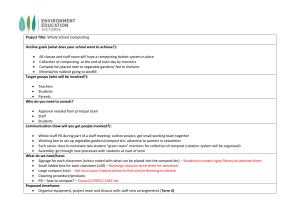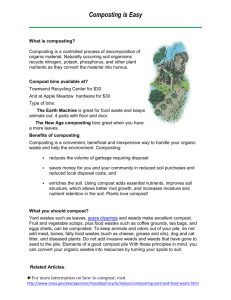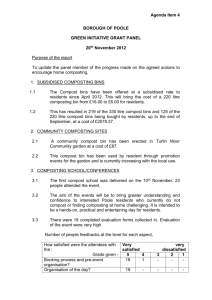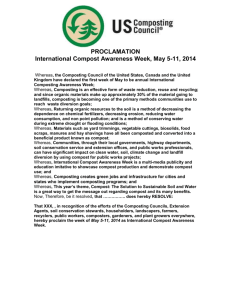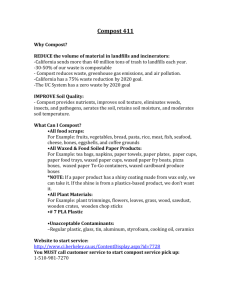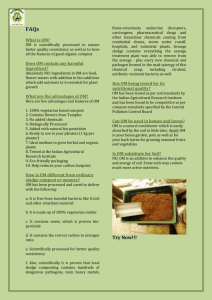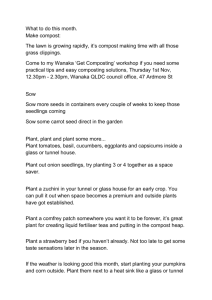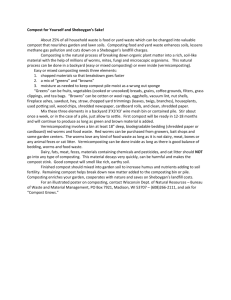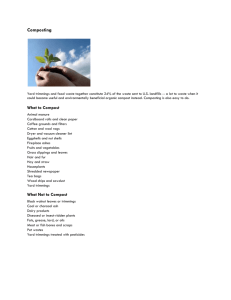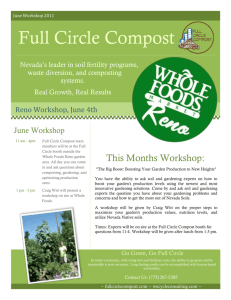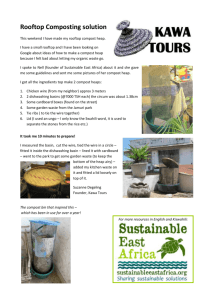File - Kerr Sustainability Centre
advertisement
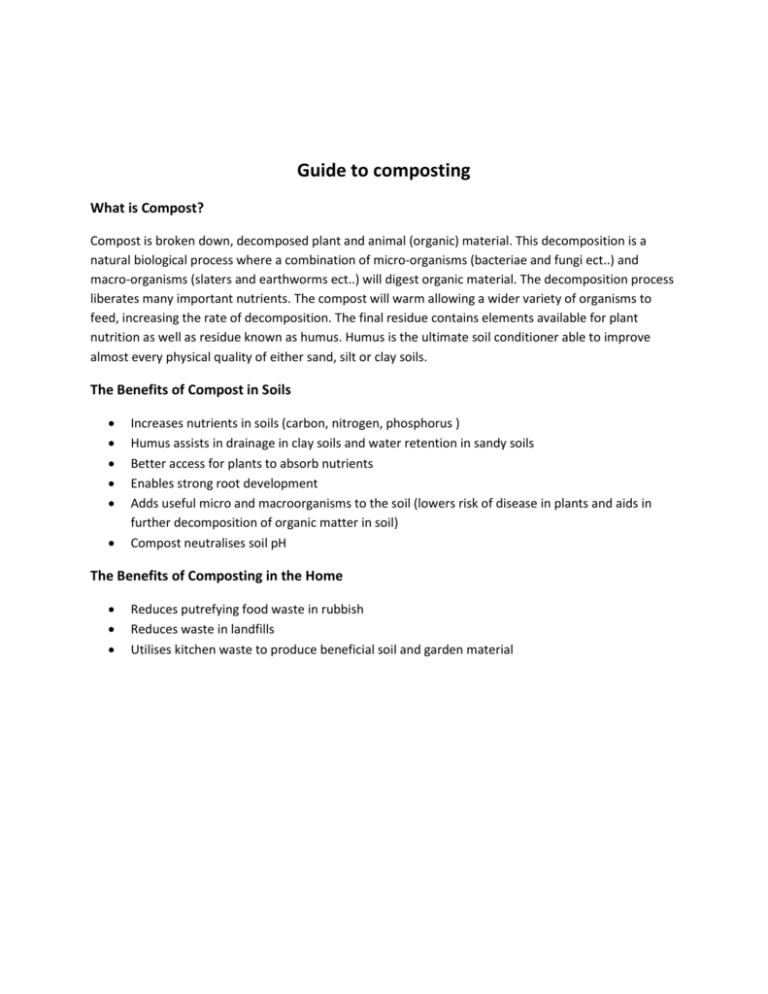
Guide to composting What is Compost? Compost is broken down, decomposed plant and animal (organic) material. This decomposition is a natural biological process where a combination of micro-organisms (bacteriae and fungi ect..) and macro-organisms (slaters and earthworms ect..) will digest organic material. The decomposition process liberates many important nutrients. The compost will warm allowing a wider variety of organisms to feed, increasing the rate of decomposition. The final residue contains elements available for plant nutrition as well as residue known as humus. Humus is the ultimate soil conditioner able to improve almost every physical quality of either sand, silt or clay soils. The Benefits of Compost in Soils Increases nutrients in soils (carbon, nitrogen, phosphorus ) Humus assists in drainage in clay soils and water retention in sandy soils Better access for plants to absorb nutrients Enables strong root development Adds useful micro and macroorganisms to the soil (lowers risk of disease in plants and aids in further decomposition of organic matter in soil) Compost neutralises soil pH The Benefits of Composting in the Home Reduces putrefying food waste in rubbish Reduces waste in landfills Utilises kitchen waste to produce beneficial soil and garden material The Technique of Composting Thicknesses of layers will vary depending on the size of your composting space. Garden lime and crushed bone are optional. Turn compost every two to three weeks with a garden fork, for aeration Common problems Problem Smelly Compost Possible Reasons Too much nitrogen material Too much moisture Oil or meat in compost The Science of Compost Actions To Take Empty compost and add dry (carbon) materials in the new layers Ensure drainage (twigs and wood chips at bottom of heap) and remove covering to allow evaporation DO NOT PUT HIGH OIL FOOD AND MEATS IN COMPOST, add garden lime to break down lipids By: Charles French Pictures: Charles French Edited by: Nathaniel Oliver
